Is romanticising your life the answer to finding happiness?
Stopping to smell the roses and other micro-joys could be the key to contentment
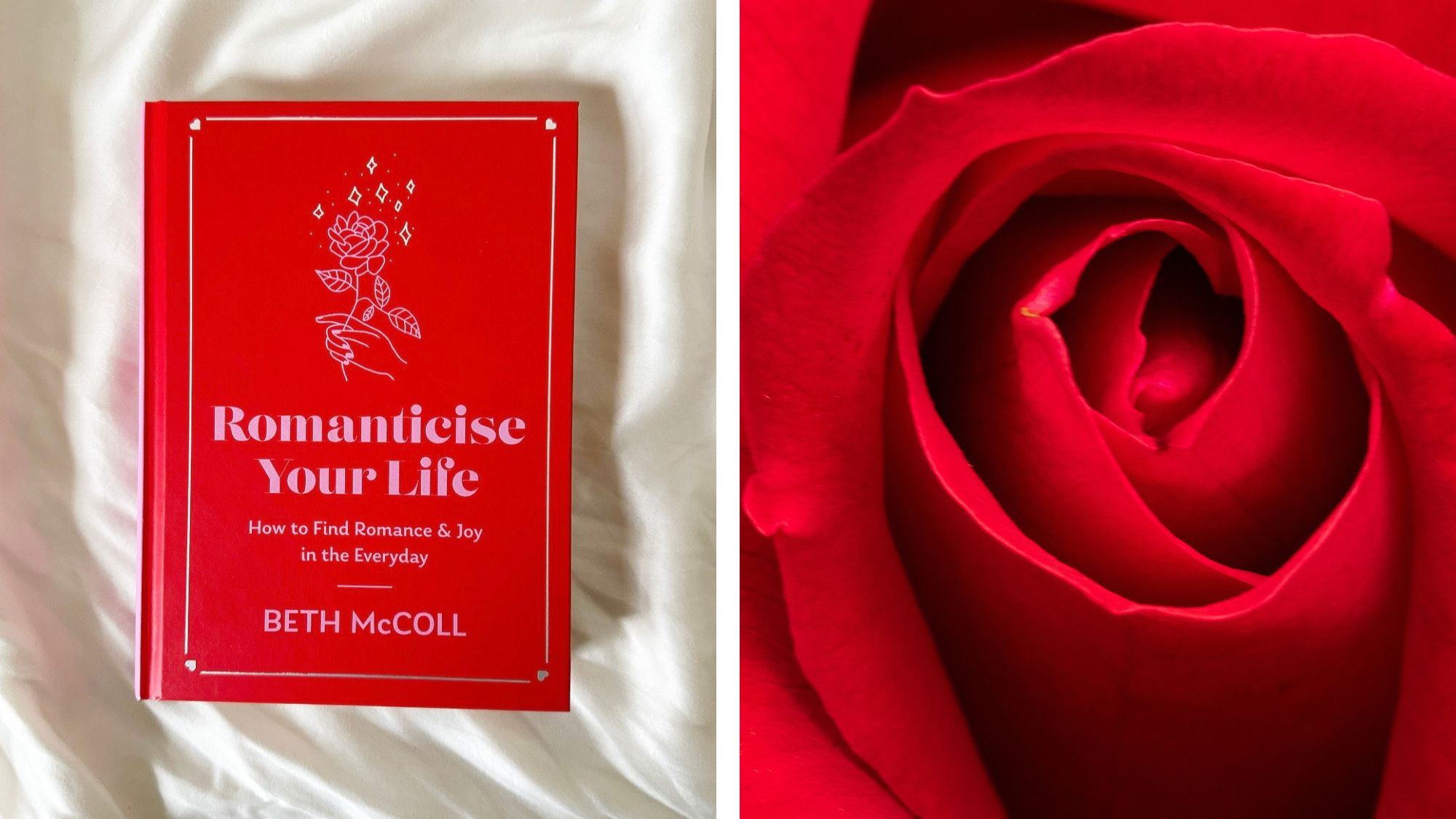

As someone who spends an embarrassing amount of time on social media, I often find myself thinking everyone else is leading a more exciting life than me. Of course, I rationally know that Instagram is little more than a highlight reel, but emotionally, it’s another story. I get pangs when my feed lights up with extravagant gifts, exotic holidays and major milestones reached, despite often peddling this kind of content myself.
My boyfriend calls it my inner ‘Fomosapien’. It’s not just me; GlobalWebIndex reports that a quarter of all global internet users experience feelings of Fomo. TikTok is littered with calls to Live! Your! Best! Life! So, you’d be forgiven for thinking everyone else is on one long holiday and wondering why you aren’t too.
@mariawhitsett ♬ original sound - ADVNCE
Rallying cries to make “a life worth living” shout out from videos, imploring us to quit that dull desk job and embark on a life of full-time adventure. Alluring, yes; realistic? Less so. This might explain why there’s a steady move towards a slower philosophy, “romanticising your life,” which celebrates life’s small joys - the smell of coffee in the morning or a burst of winter sun. As journalist Beth McColl explains, it’s about making the ordinary feel extraordinary. She’s just released a book called Romanticise Your Life: How to find romance & joy in the everyday, so she should know.
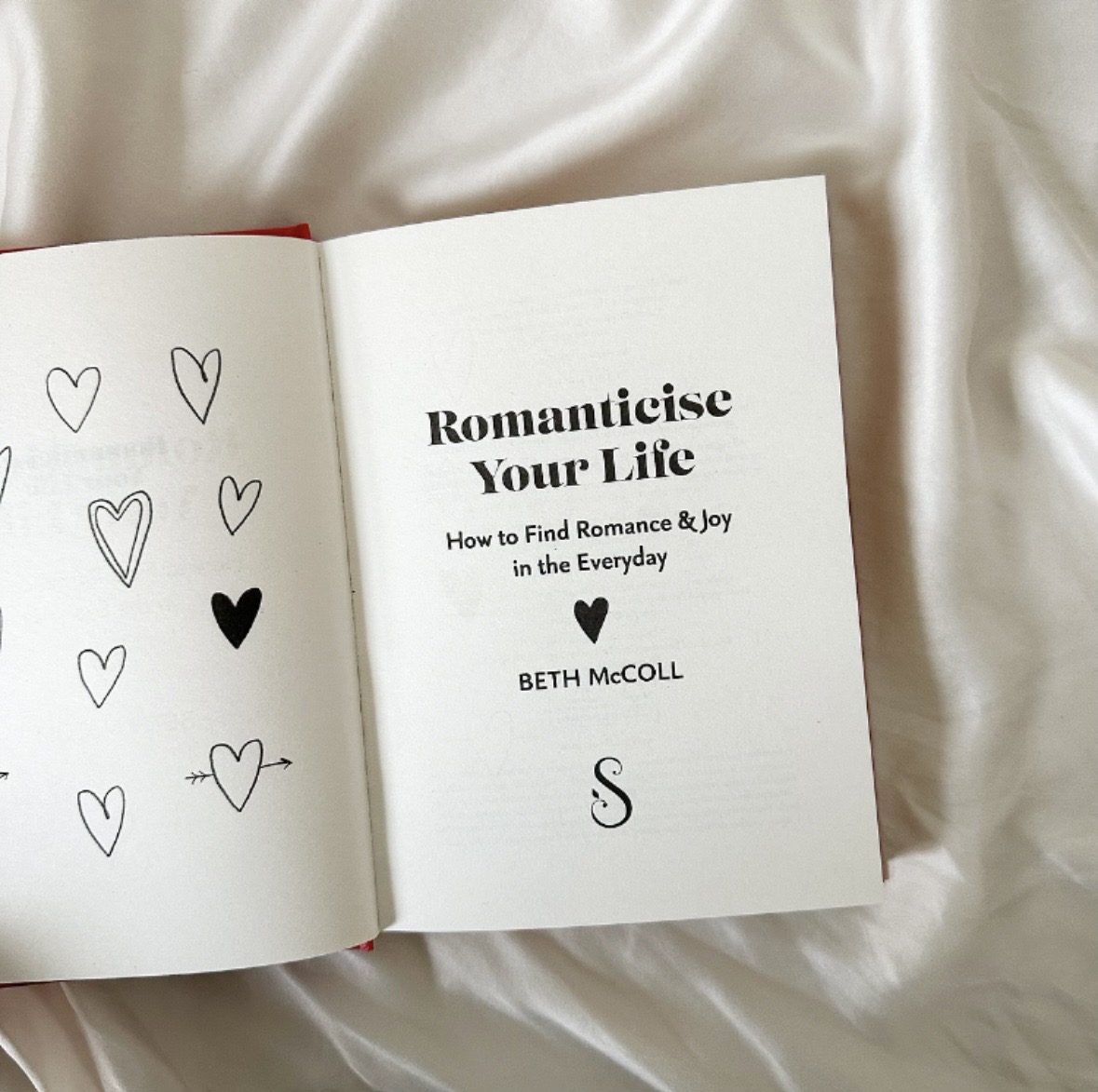
Described as “The ultimate guide to romanticising your life and finding joy in the every day”, the book touches on some of the most intriguing aspects of modern life - solo travelling, the power of female friendships, Main Character Energy, and, of course, dating. But more than anything, it looks at the small ways we can bring more joy to our lives.
“So much of my life is spent doing these quite mundane things, and I've tried to make them a little bit more magical and a little bit more significant.”
Beth McColl
Societally, we celebrate the big life events more than the smaller ones; it makes for better content. But life isn’t a series of momentous occasions; it’s a string of little things. As Beth says, “Most big changes are the result of countless smaller changes and adjustments.” Social media would have us believe everyone is reinventing themselves on a whim, which, if you’re anything like me, might leave you questioning why it’s so hard to bring change to your own life when everyone else seems to do it with ease.
Beth says that because we’re not witness to the graft that goes into that big new job or move across the world, it can make us misinterpret what’s necessary for our own lives to move forward.
In a world that seems to be spinning faster than ever, romanticising your life feels charmingly refreshing and reminiscent of another era - in many ways, it’s an offshoot of cottagecore — which has 5.3 million views on Instagram — and the back-to-nature idelogies swirling around social media. The concept is simple - take pleasure in the small things and live with intention, but Beth recognises that shifting our mindset isn’t easy, even when we want it to be. “I’m not a person who can maintain habits with ease, and that’s been a real source of shame. But with romanticising, it feels like such a playful thing,” she says.
Marie Claire Newsletter
Celebrity news, beauty, fashion advice, and fascinating features, delivered straight to your inbox!
@johannasophie_ ♬ sonido original - Carlos Mcnov🐚🌊✨
In our time-poor society, it’s easy to scoff at the idea of turning the simple act of making breakfast into a ritual worthy of documentation, but romancing yourself is about snatching snippets of time as an act of self-care. Beth calls this mindfulness on the go. “As much as I love mindfulness, I’m not going to set out an hour in the morning,” she says. Instead, she suggests reclaiming time where you can, like in between meetings or during a commute you’d usually zone out for. There are so many demands on our attention that sometimes it feels easier to dissociate to dull the noise.
A photo posted by jennydeluxe on
Beth advocates for being more present; many of us move through life in a haze of routines and obligations like passive characters waiting for our real lives to kick in. Nowhere is this truer than when it comes to waiting for that significant other. Beth says it’s time we start “Giving to ourselves what we are tired of waiting for from others.” Despite its name, her book is about decentering romance, at least in the traditional sense.
“Reject the idea of waiting for this romance that may or may not be coming and build romance with the tools that you've got, which are often abundant.”
Beth McColl
She dismantles the idea that big proclamations of love — running through the airport to meet someone, for example — should be the reserve of romantic relationships. She makes a good point. Why are we so eager to make bold gestures to near strangers but less likely to bring this passion to the people who have already proved themselves worthy of our love?
She recalls “waiting for a second person to arrive at the threshold of my life and make it more exciting for me, to make me a real person worthy of sensation and pleasure”. We all deserve excitement and affinity, and we probably have access to it. If we think beyond the narrow parameters of conventional coupledom, we’ll see that intimacy is all around us. It’s the friend who texts just to “check in” or make sure we got home safe. It’s the people who pull us up out of literal shit (you’ll have to read the book for that reference).
“We’re taught that being alone or seeing other people alone is cause for concern. It’s quite a curious sight,” explains Beth, who has had to push past her discomfort when spending what she calls “active time alone”. She recognises that, as with all good intentions, it takes practice and patience. She finds it helps to get out and be near other people, even if it’s just sitting in a cafe or park bench, so you can see life carrying on despite what you may be going through. It’s a reminder that, as she says, “I was here, I lived, I did so on purpose.”
We’re trained to scan the horizon for people who are doing better, but by lowering our expectations of what a great day needs to be, Beth says we’ll begin to “chip away at that idea that you need to be living an extraordinary life because it’s just not possible.” Who wants to be ordinary, you ask? Actually, I think I might want to be.

Mischa Anouk Smith is the News and Features Editor of Marie Claire UK.
From personal essays to purpose-driven stories, reported studies, and interviews with celebrities like Rosie Huntington-Whiteley and designers including Dries Van Noten, Mischa has been featured in publications such as Refinery29, Stylist and Dazed. Her work explores what it means to be a woman today and sits at the intersection of culture and style. In the spirit of eclecticism, she has also written about NFTs, mental health and the rise of AI bands.
-
 Meghan Markle opens up about 'huge medical scare' after giving birth
Meghan Markle opens up about 'huge medical scare' after giving birthBy Iris Goldsztajn
-
 You'll never guess which White Lotus characters almost had sex in the finale
You'll never guess which White Lotus characters almost had sex in the finaleWe can't believe this
By Iris Goldsztajn
-
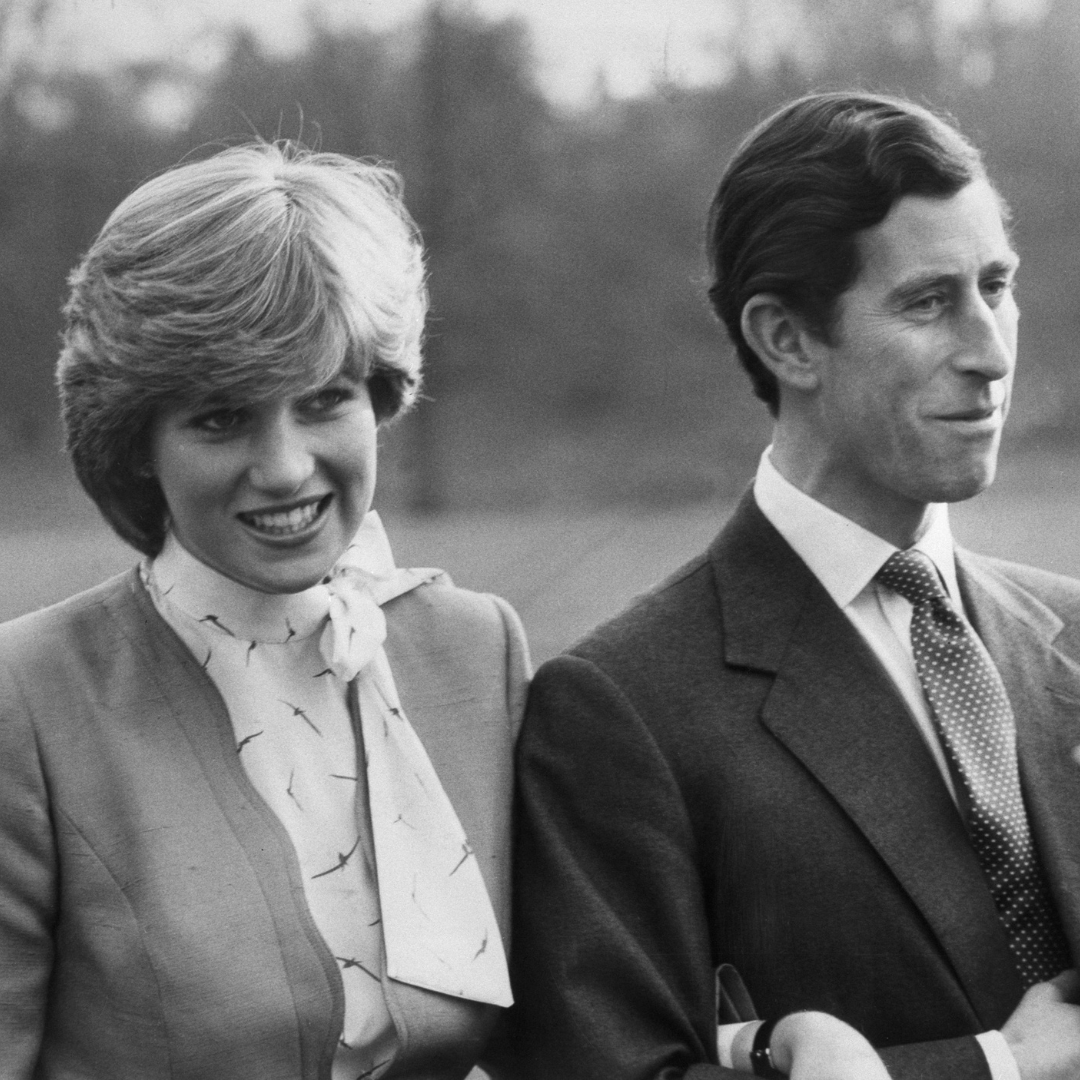 What King Charles 'deeply regrets' from marriage to Princess Diana
What King Charles 'deeply regrets' from marriage to Princess DianaIt was a difficult relationship
By Iris Goldsztajn
-
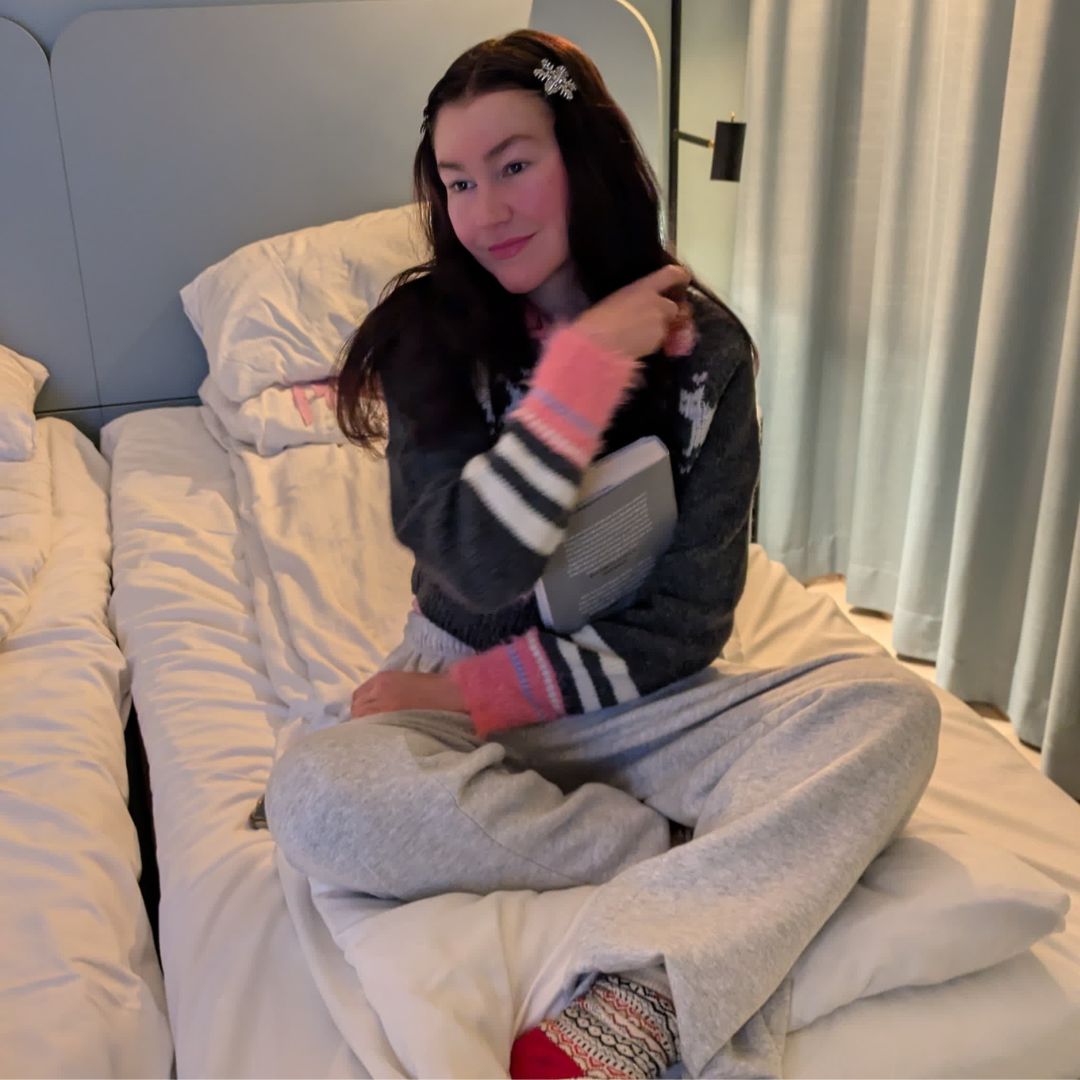 I used to hate winter, but Nordic wintering trends have completely changed my mind
I used to hate winter, but Nordic wintering trends have completely changed my mindIn my endless quest for inner calm and the answer to winter fatigue, I stumbled upon some Hygge-style techniques that solved my seasonal blues and winter burnout.
By Mischa Anouk Smith
-
 I used a self-improvement journal every morning and evening for a week – and was surprised by what happened to my productivity and mental health
I used a self-improvement journal every morning and evening for a week – and was surprised by what happened to my productivity and mental healthPen and paper at the ready.
By Anna Bartter
-
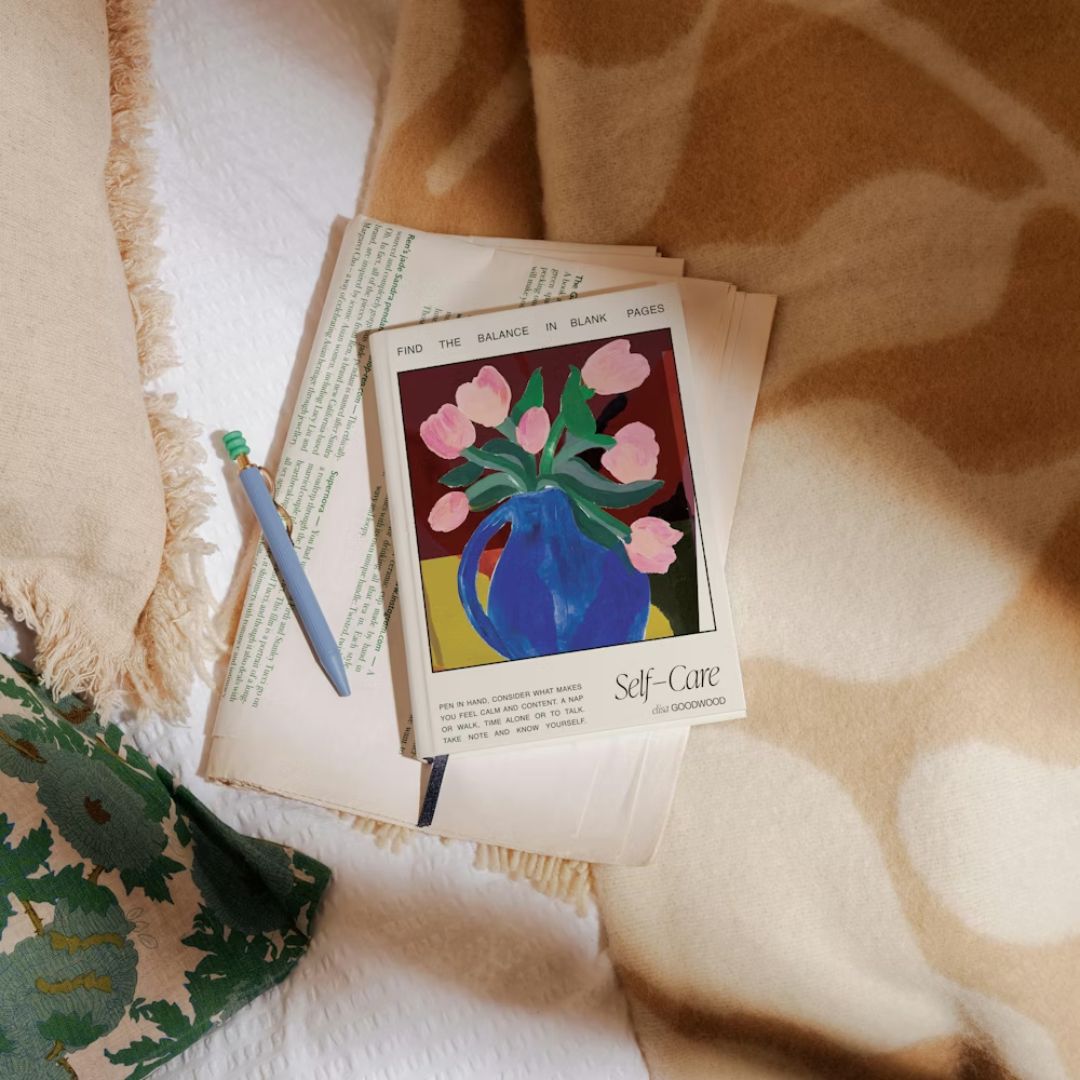 Wellness journals promise to boost productivity, gratitude and calm - 13 best to add to basket
Wellness journals promise to boost productivity, gratitude and calm - 13 best to add to basketTried and tested by team MC.
By Grace Lindsay
-
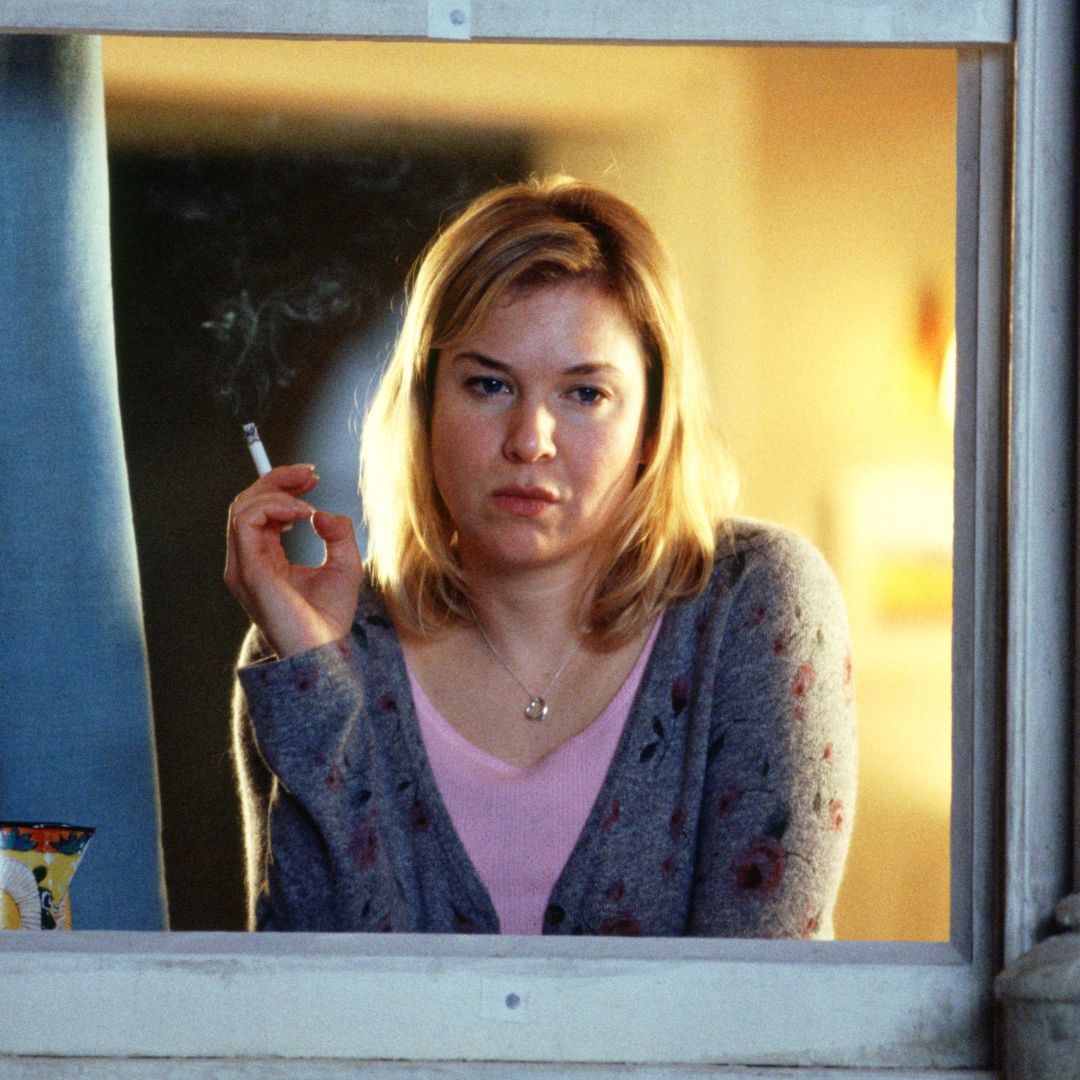 Can you die from a broken heart?
Can you die from a broken heart?What *does* become of the broken hearted?
By Mischa Anouk Smith
-
 Not sure how to journal? 8 tips for self growth, productivity and calm, according to top pros
Not sure how to journal? 8 tips for self growth, productivity and calm, according to top prosSimple steps to self improvement.
By Dionne Brighton